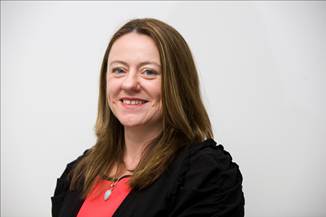Features
Green Dragon – Juliet Davenport
Juliet Davenport – CEO Good Energy
In 1999, with environmental consultancy ESD, Juliet set up the company that would become Good Energy. She became CEO in 2000 and, following the first share offering in 2002, saw over 600 customers buying into her idea. That extra finance bought a wind farm in Delabole, Cornwall. In 2004 Good Energy joined the PLUS Market, leading to more share offers. Most of Good Energy’s shareholders are also customers.
The driving force
Juliet is an influential and powerful executive whose refusal to sit back and do nothing is an inspiration to us all. Her numerous awards and tributes, including an honorary doctorate for her contribution to renewable energy, point to tireless energy and determination to “create a blueprint that we can use for the UK to disrupt the existing systems from large generators and large suppliers to a wholly different way of doing things […] creating a large marketplace that can support local generators delivering to local customers”. But what of the woman herself? Assuming she finds the time, what does she do to relax?
In terms of likes, Juliet’s in the process of renovating her 400-year-old Cotswold house in the most eco-friendly way possible, as well as maintaining the surrounding land and wildflower meadows. She also looks after her daughter and her lurcher Patchy, cooks, gardens and rides a horse. The only two things she professes to dislike are travel and “not having enough time to do the above!”
The future
So how does Juliet see the world shaping up? Well, her company has developed a pathway, built around a home-grown energy movement, which demonstrates how the UK can become 100 percent renewable by 2050. Juliet believes that locally and independently produced energy is better for the UK’s future energy security as well as for cutting our carbon emissions. She’s also in favour of simplifying things; once people understand energy they value it more and use it less.
In terms of shifting patterns in market demand, Juliet considers the Feed-in Tariff to be fantastic news. It moves control away from a handful of big energy firms to a market where power is generated and delivered locally – empowering individuals, communities and small-scale generators.
So how else does Juliet see herself standing out from mainstream thought? “Working in the energy sector, I’ve seen that our industry lacks women in top-level roles. What I find is that women can often have very different natural skills and abilities to men as well as different ways of resolving conflict, which can very much complement and enhance business. It seems that a lot of time in the energy industry is spent trying to protect the status quo; but in fact there are so many opportunities in a low carbon energy sector that there is space for everyone to develop. I think more women in senior positions could help this, and make the whole industry more forward thinking.”
And finally …
Having already put her money where her mouth is, Juliet’s advice to others is: “Use less, generate more, and buy 100 percent renewable. Together we do this.”


 Environment12 months ago
Environment12 months agoAre Polymer Banknotes: an Eco-Friendly Trend or a Groundswell?

 Features11 months ago
Features11 months agoEco-Friendly Cryptocurrencies: Sustainable Investment Choices

 Energy11 months ago
Energy11 months agoThe Growing Role of Solar Panels in Ireland’s Energy Future

 Energy10 months ago
Energy10 months agoGrowth of Solar Power in Dublin: A Sustainable Revolution




























